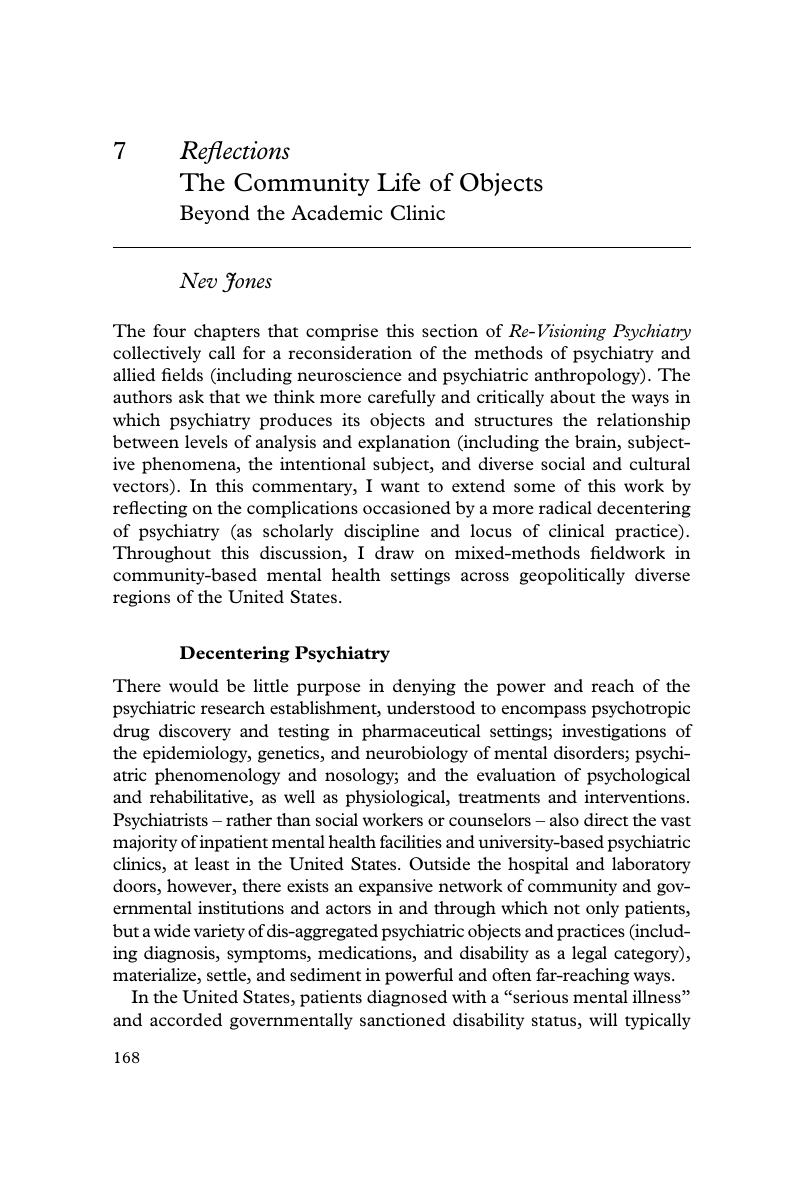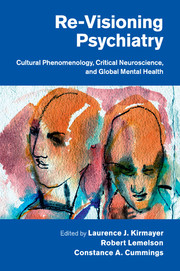Book contents
- Re-Visioning Psychiatry
- Re-Visioning Psychiatry
- Copyright page
- Dedication
- Dedication
- Contents
- Figures
- Tables
- Contributors
- Foreword
- Preface
- Glossary
- 1 Introduction: Psychiatry at a Crossroads
- Section One Restoring Phenomenology to Psychiatry
- 2 Toward a New Epistemology of Psychiatry
- 3 Phenomenology and the Interpretation of Psychopathological Experience
- 4 How the Self Is Altered in Psychiatric Disorders
- 5 Cultural Phenomenology and Psychiatric Illness
- 6 Empathy and Alterity in Psychiatry
- 7 Reflections The Community Life of Objects
- Section Two Biosocial Mechanisms in Mental Health and Illness
- Section Three Cultural Contexts of Psychopathology
- Section Four Psychiatric Practice in Global Context
- Index
- References
7 - Reflections The Community Life of Objects
Beyond the Academic Clinic
from Section One - Restoring Phenomenology to Psychiatry
Published online by Cambridge University Press: 05 July 2015
- Re-Visioning Psychiatry
- Re-Visioning Psychiatry
- Copyright page
- Dedication
- Dedication
- Contents
- Figures
- Tables
- Contributors
- Foreword
- Preface
- Glossary
- 1 Introduction: Psychiatry at a Crossroads
- Section One Restoring Phenomenology to Psychiatry
- 2 Toward a New Epistemology of Psychiatry
- 3 Phenomenology and the Interpretation of Psychopathological Experience
- 4 How the Self Is Altered in Psychiatric Disorders
- 5 Cultural Phenomenology and Psychiatric Illness
- 6 Empathy and Alterity in Psychiatry
- 7 Reflections The Community Life of Objects
- Section Two Biosocial Mechanisms in Mental Health and Illness
- Section Three Cultural Contexts of Psychopathology
- Section Four Psychiatric Practice in Global Context
- Index
- References
Summary

- Type
- Chapter
- Information
- Re-Visioning PsychiatryCultural Phenomenology, Critical Neuroscience, and Global Mental Health, pp. 168 - 176Publisher: Cambridge University PressPrint publication year: 2015



